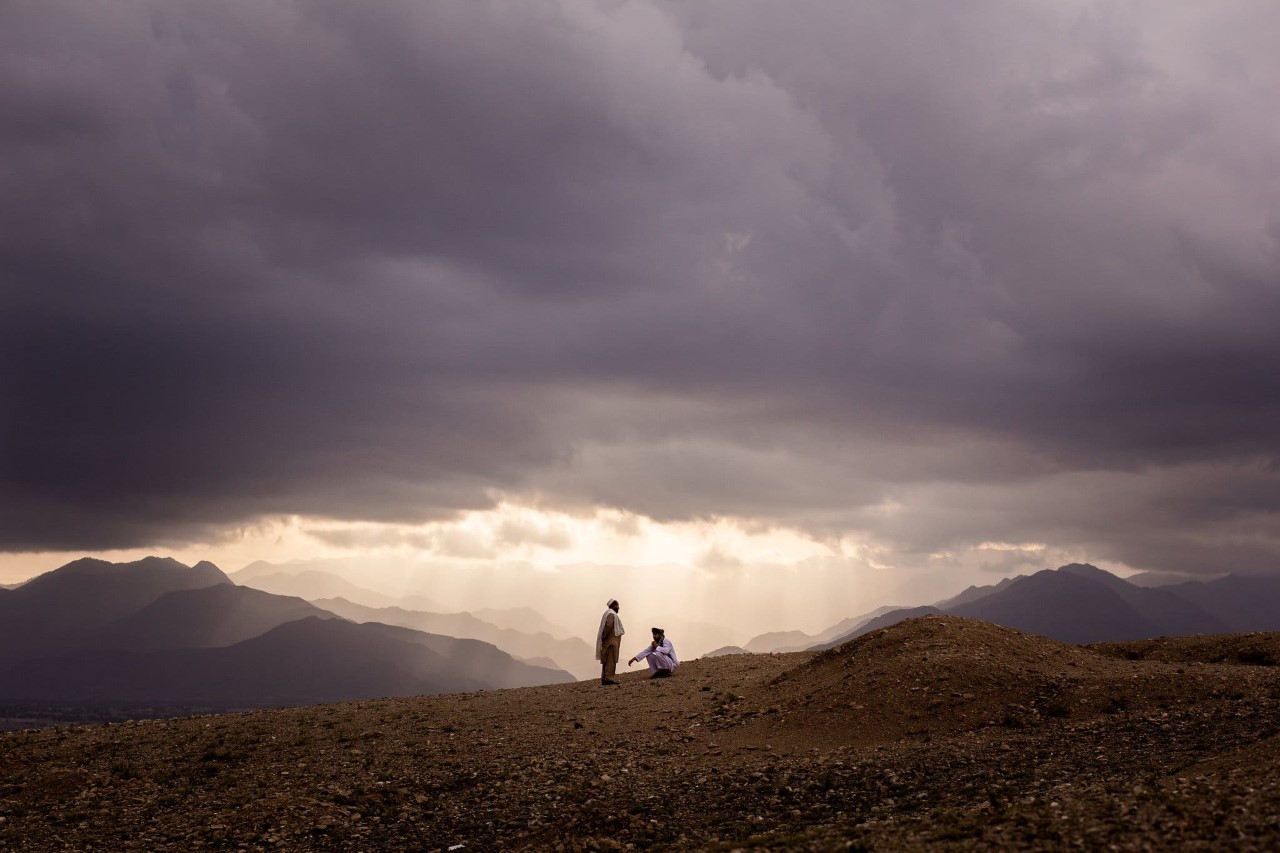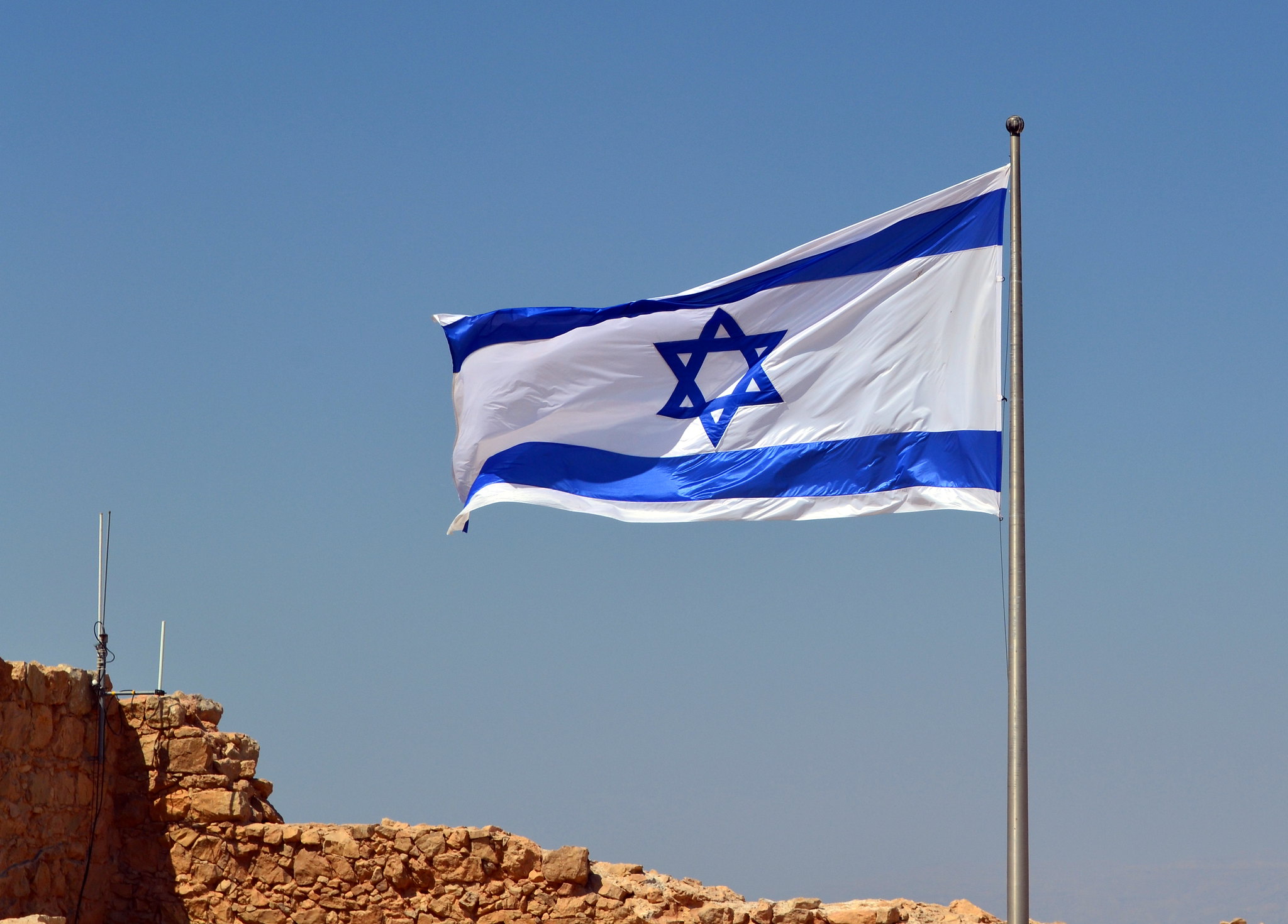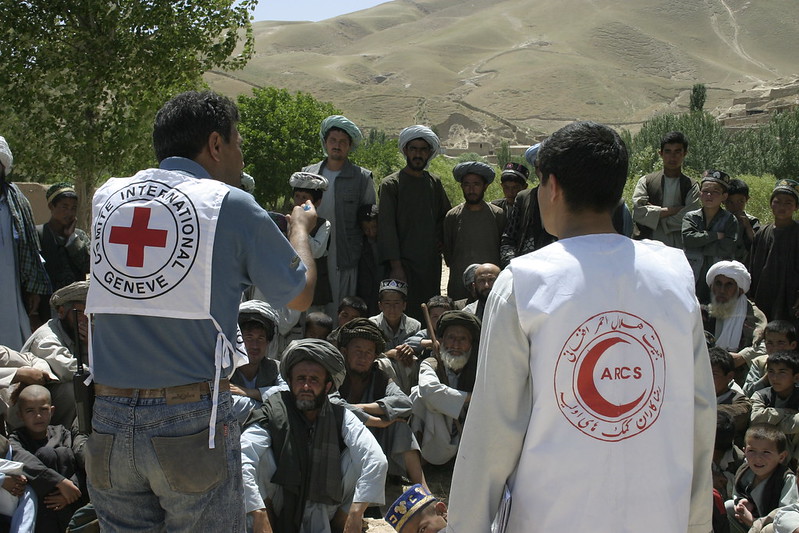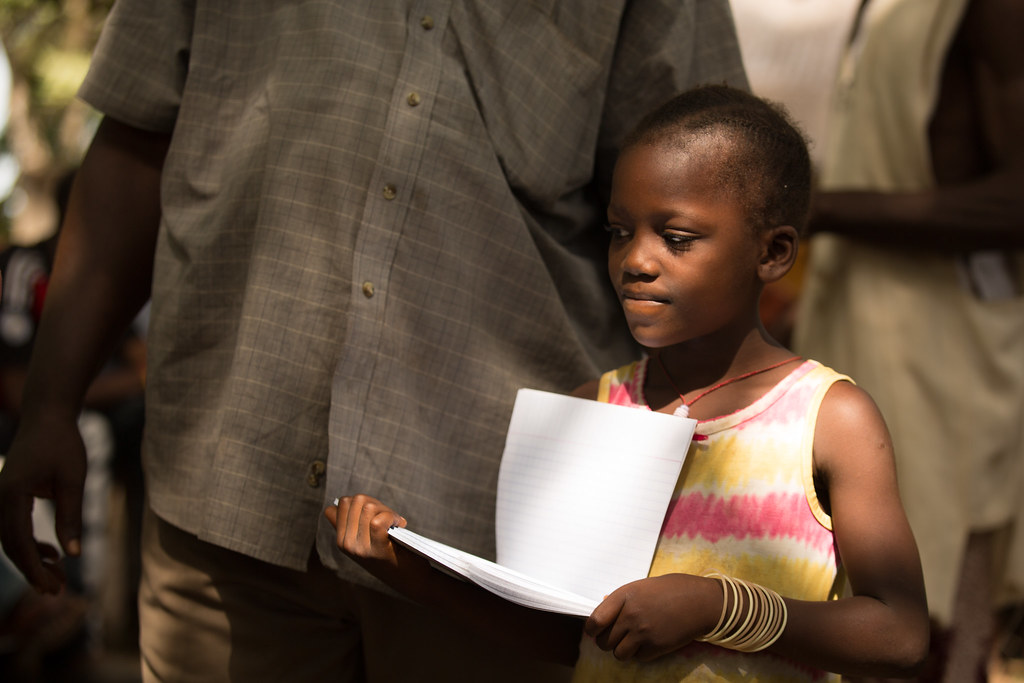Students on the MSc in International Development and Humanitarian Emergencies Niki Tavakoli and Salma Ibrahim write about their recent programme trip to Geneva, a global centre of humanitarianism and peacebuilding, where they had a chance to visit key sites and meet with professionals from the humanitarian sector.
A few weeks after beginning our programme in autumn 2021, six passionate IDHE students volunteered to organize a trip to Geneva for their fellow cohort in April 2022. Under the guidance of Dr Ian Madison, LSE Fellow and IDHE programme co-director, the coordination committee divided the tasks among themselves, and each one committed to a specific responsibility. Despite the uncertainty of the pandemic at that time, the team aimed to make this trip happen…and the six months of effort finally paid off!
Between the 4th and the 6th of April 2022, a group of 37 IDHE students accompanied by Dr Ian Madison travelled to Geneva, the global headquarters for many international organizations. The purpose of the visit was to meet with professionals from some of the development, humanitarian, and peacebuilding sectors, learn from their experiences, and understand how to find solutions for the common challenges in the humanitarian field. During the three-day trip, we visited the Geneva Centre for Security Policy (GCSP), International Federation of Red Cross and Red Crescent Societies (IFRC), Plan International, and the United Nations Office for the Coordination of Humanitarian Affairs (UNOCHA) and had productive sessions with several senior professionals.
Day one: Peacebuilding, old town walking tour, and a networking dinner
Our trip started with a visit to the Geneva Centre for Security Policies, an international foundation that promotes the “building and maintenance of peace, security, and stability” located in the Maison de la paix building (the house of peace). It was a great pleasure to have the welcome remarks and introductory reflections be given by Ambassador Thomas Greminger, Director of the GCSP, on: great power rivalry and the breakdown of trust, and the implications for building peace. Four other amazing speakers talked about the role and relevance of armed non-state actors; the interlinkage of peace in humanitarian and development work; an introduction to the humanitarian-development-peace nexus; and peacebuilding and human rights. The session was followed by a Q&A discussion and networking with some of the GCSP staff.

In the afternoon, we had a fascinating city walk in Geneva’s old town kindly offered by an LSE alum and former LSE ID staff member who now lives and works in Bern, Switzerland. During the city walk, Sarah informed us about a hundred years of untold humanitarian history in the heart of Geneva, the capital of the Red Cross and cradle of humanitarian actions. Starting our walk from the University of Geneva, we strolled around the city to discover the treasure of the old town and visited the Reformation Wall, Place de Neuve Square (meaning new place), Buste Henri Dunant, Overlord Archive (Archives d’État de Genève), Bourg-de-Four Square, the flower clock and Jet d’Eau (meaning water jet) fountain on Lake Geneva.
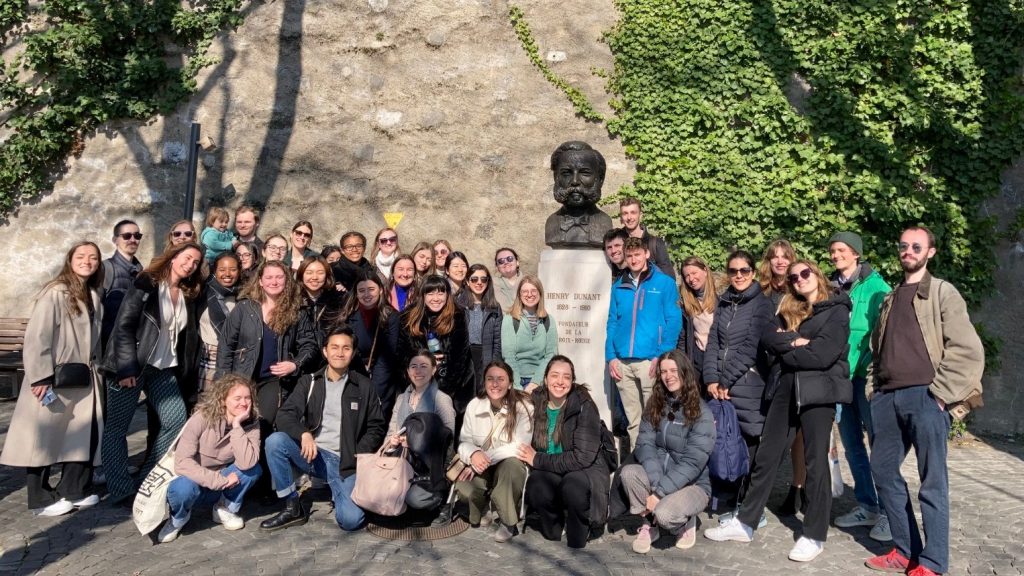
We wrapped up our day with a networking dinner in a restaurant with authentic Mediterranean flavours in the centre of the international organization quarter in Geneva. We had the pleasure of meeting with two amazing guests from the UNHCR Geneva, one of them an LSE IDHE alumnus who works on diversity and inclusion, and another guest who was the head of one of the UNHCR sub-offices and a specialist in durable solutions. In a friendly atmosphere, the team talked with the guests about their own professional experiences, the challenges they face in their daily work, and prospects for refugees and forced migration.
Day two: Digging into the world of humanitarianism
Day two started with a visit to the distinguished premises of the International Federation of Red Cross and Red Crescent (IFRC), the world’s largest humanitarian network. We were met with a warm welcome from the staff, who showed us their main meeting room with its spectacular view of the Swiss mountains. After some interesting discussions on gender, diversity, and community engagement, we had the opportunity to network with the friendly staff over lunch at their cosy cafeteria. As we were leaving the premises, we expressed how we look forward to re-visiting this place again, but as members of staff.
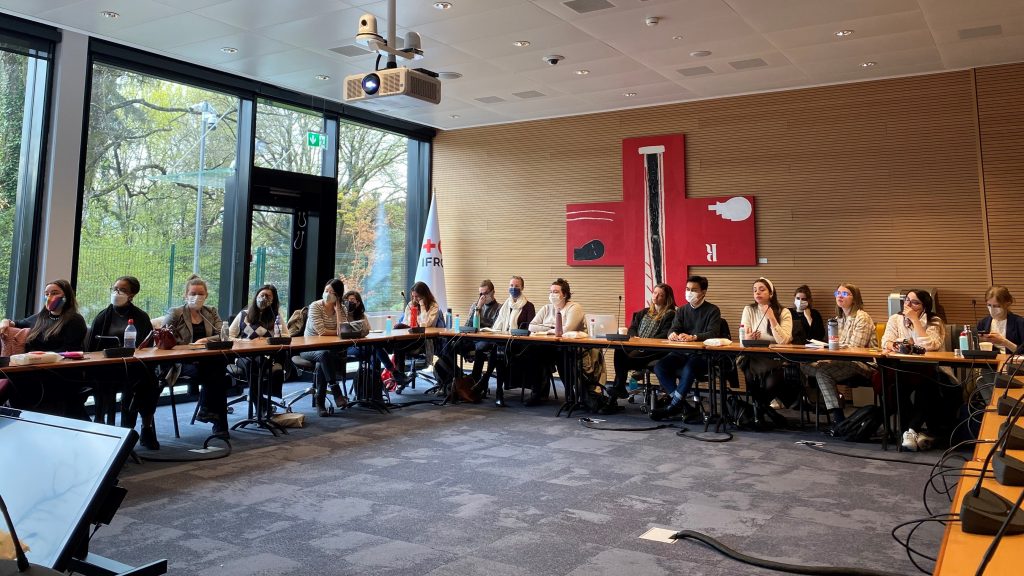
Our next destination was Plan International, a development and humanitarian organization promoting and protecting the children’s rights and equality for girls and young women, where we shared thoughts on appropriate interventions within forced displacement contexts. Being one of the IDHE’s consultancy clients for DV453 this year, we also had the privilege of listening to a presentation on the amazing work done for Plan International by some of our IDHE classmates.
We ended the day with a visit to the ICRC museum. At a first glance, one would think it is just another museum talking about conventions and international law, but it was much more than that. The museum was an intense humanitarian experience, and a place of memory, heritage, and remembrance. The voices of refugees and forcefully displaced persons were foregrounded, and their experiences could be seen and heard in every corner. Photos of lost family members, artwork crafted by prisoners of war, and letters that were never delivered are all part of the experience. We ended the day with mixed emotions of grief, empathy, and hope that one day, we will be able to heal a broken world.
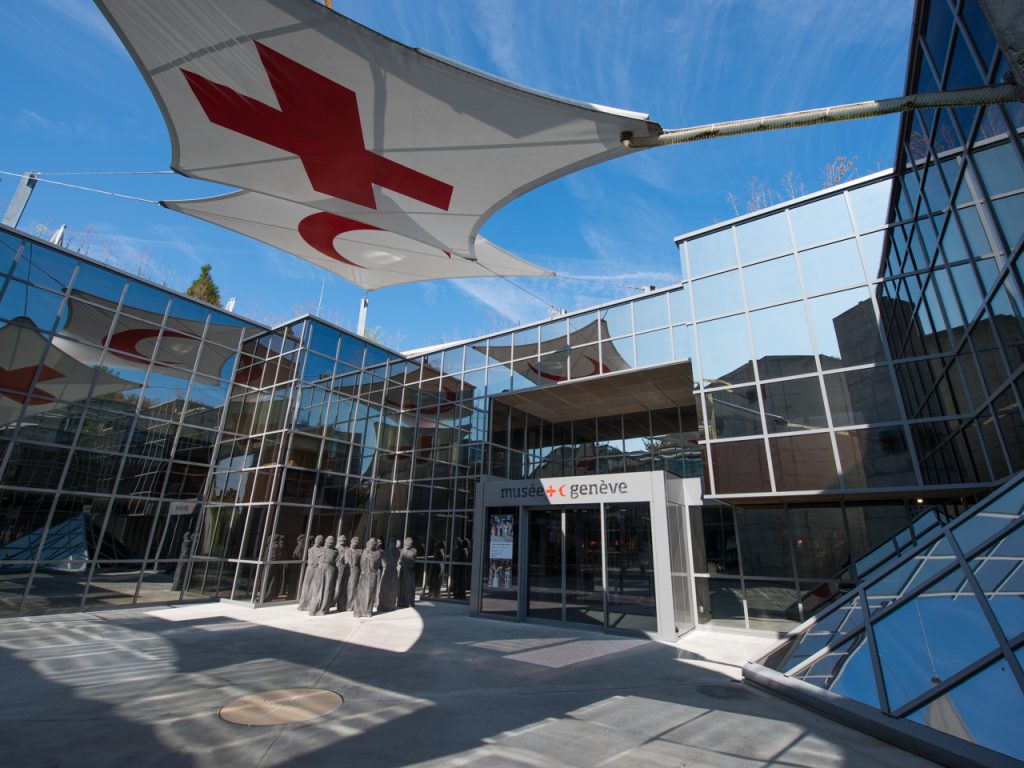
Day three: Palais des Nations and humanitarian operations
On the last day, UNOCHA hosted us at the United Nations Library where we learned about the history of the League of Nations and the construction of the Palais des Nations and the vision behind the establishment of the library to “serve as a centre of international research and an instrument of international understanding”. The UN Library at Geneva not only serves as a repository for all records but also presents enduring historical and cultural values. ‘The Dream of Peace, a giant mural by the Norwegian painter, pacifist, and peace activist, Henrik Sørensen, adorns the great events hall of the UN library’, to illustrate that humanity can still find ways to peace.
We were privileged to have three first-hand sessions by key professionals on: the governance of intergovernmental organizations; humanitarian Coordination; and Humanitarian Aid and geopolitics. The speeches enriched our understanding of managing humanitarianism, humanitarian coordination and challenges in the field, and helped us connect the dots from the theoretical knowledge we have been learning during the programme to a practical perspective.
To commemorate our visit to Geneva and the historic Palais des Nations, we had a group photo in front of the Alley of Flags which represents “unity, solidarity, and cooperation among all nations”.
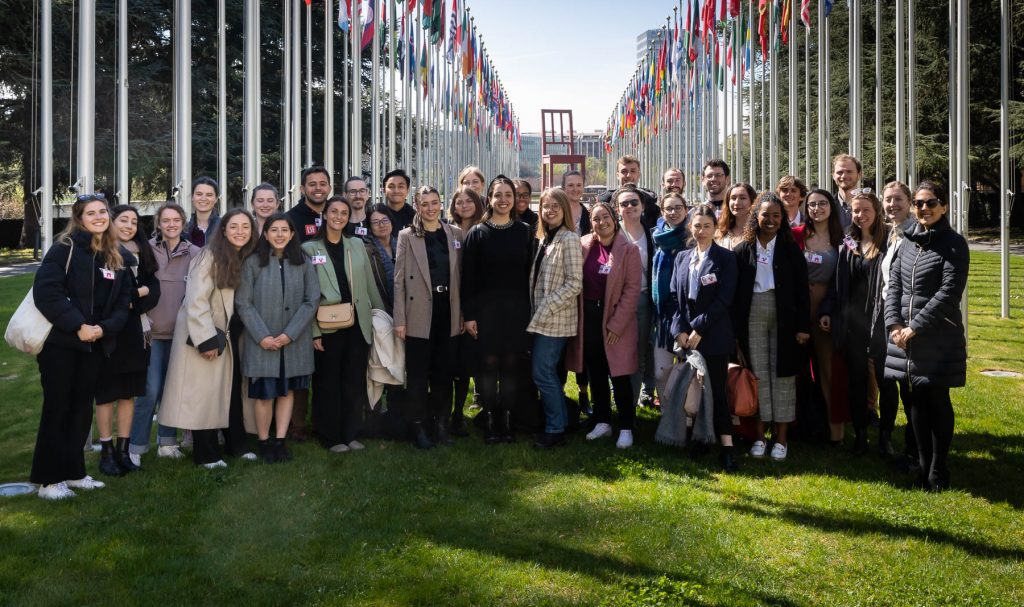
Without a doubt, visiting Geneva and meeting with many professionals was a brilliant experience and one of the most fascinating and memorable parts of our programme.
The views expressed in this post are those of the authors and in no way reflect those of the International Development LSE blog or the London School of Economics and Political Science.
Photo credits: Niki Tavakoli and Salma Ibrahim, unless otherwise stated.


